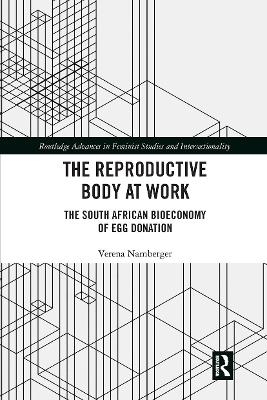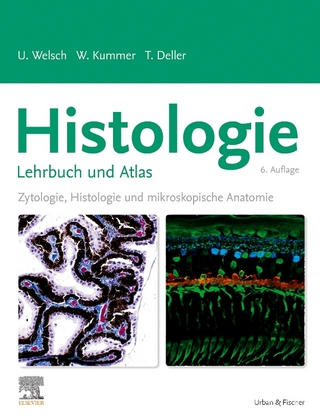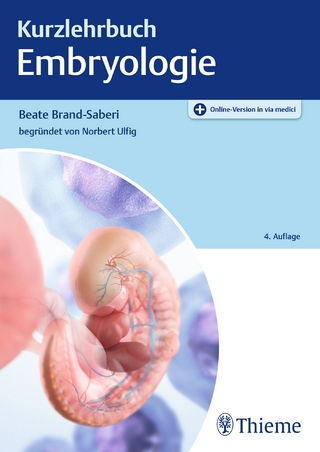
The Reproductive Body at Work
Routledge (Verlag)
978-0-367-67083-2 (ISBN)
- Titel z.Zt. nicht lieferbar
- Versandkostenfrei innerhalb Deutschlands
- Auch auf Rechnung
- Verfügbarkeit in der Filiale vor Ort prüfen
- Artikel merken
The transnational industry surrounding assisted reproductive technology and regenerative medicine is based on the unacknowledged labour of gamete providers, surrogates and research subjects, and benefits from low labour costs in ‘enabling’ sectors such as logistics and transport. This finding calls for a comprehensive analysis of how the contemporary intersection of neoliberal capitalism and the life sciences - in short, the bioeconomy - capitalises on the body and its (re)productive capacities.
The Reproductive Body at Work uptakes this challenge as it explores the relations between value production, labour and the body in one particular realm of the global bioeconomy: the South African bioeconomy of ‘egg donation’. It highlights different forms and dimensions of unacknowledged or precarious human labour that are constitutive for the procurement, brokering and circulation of oocytes as valuable resources. The analysis illustrates that the respective organisation of value and labour renegotiate what ‘the’ (re)productive body can do, which status and roles it is ascribed, which cultural and economic values it signifies and how it is experienced and enacted within a matrix of intersectional power relations.
A theoretically profound contribution to the interdisciplinary debate on ‘New materialism’, The Reproductive Body at Work will appeal to students and researchers interested in fields such as gender studies, medical anthropology, cultural studies, sociology, political economy and science and technology studies.
Verena Namberger completed her PhD in Gender Studies at Humboldt-Universität zu Berlin, Germany
List of Figures
List of Abbreviations
Foreword
Acknowledgements
Chapter 1: Introduction
1.1 Marx, Biotechnology and the Life Sciences: Rewriting BioCapital?
1.2 Time for Renewed Conversations: Capitalism and the Body
1.3 The Global Business of Egg Donation
1.4 Case Study and Methods: Diffracting Egg Donation in South Africa
1.5 Outline and Chapter Structure
Chapter 2: Valuable Eggs and Lively Capital in South Africa
2.1 Conditions of Possibility: Technologies Travel as well as Business Models
2.2 The Value(s) of the ‘Gift of Life’
2.3 Into the Messiness of Commodification: Egg Fetishism
2.4 Value in Motion: Reproductive Travellers and Logistics
2.5 Summary
Chapter 3: Deconstructing Nature’s ‘Latent Value’: Labour in Egg Donation
3.1 Feminist Interventions With and Against Work: Wages for Egg Donation?
3.2 Labour Matters in South Africa: ‘Having Eggs is not Enough’
3.3 Fertility Workers
3.4 Summary
Chapter 4: Bodies Made in South Africa
4.1 Mind the Gap: Bodies in the Life Sciences __ Bodies in Capitalism
4.2 In/fertile Bodies: When Procreation Meets Efficiency
4.3 On Beauty: Visualisation Technologies, Aesthetics, and Looks
4.4 Bodies of Data and Genetics
4.5 In Transit: Biological Cargo, Body Containers
4.6 Summary
Chapter 5: Body Formation in Bioeconomic Times
5.1 The Crux of the Matter: Labour
5.2 Picturing ‘(Re)productive Bodies at Work’
Chapter 6: Conclusion
| Erscheinungsdatum | 16.01.2021 |
|---|---|
| Reihe/Serie | Routledge Advances in Feminist Studies and Intersectionality |
| Verlagsort | London |
| Sprache | englisch |
| Maße | 156 x 234 mm |
| Gewicht | 260 g |
| Themenwelt | Studium ► 1. Studienabschnitt (Vorklinik) ► Histologie / Embryologie |
| Studium ► 1. Studienabschnitt (Vorklinik) ► Med. Psychologie / Soziologie | |
| ISBN-10 | 0-367-67083-6 / 0367670836 |
| ISBN-13 | 978-0-367-67083-2 / 9780367670832 |
| Zustand | Neuware |
| Informationen gemäß Produktsicherheitsverordnung (GPSR) | |
| Haben Sie eine Frage zum Produkt? |
aus dem Bereich


